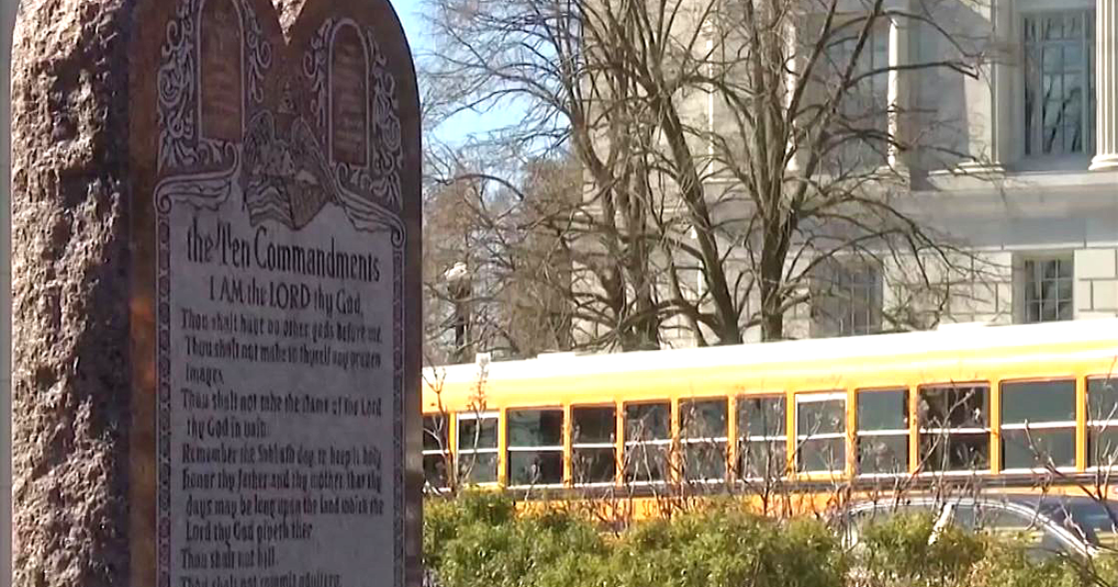
A group of Texas families is taking legal action, suing more than a dozen public school districts over plans to display the Ten Commandments in classrooms. Several North Texas school districts are named in the lawsuit, including Fort Worth ISD.
The ACLU filed the lawsuit on behalf of 15 multifaith and nonreligious families. The families are suing 14 public school districts over plans to display the Ten Commandments, arguing the state law violates their religious freedom and the separation of church and state.
Concerns about faith and coercion
“Well, the children don’t want to go into school every day, and have the Ten Commandments, and a specific version of the Ten Commandments be imposed on them, when that could not be their faith, or even some people who it is their faith, that is not what they go to public school for,” said Sarah Corning, one of the ACLU attorneys representing the families.
Of the 14 school districts named in the lawsuit, nine are in North Texas, including Arlington ISD, McKinney ISD, Frisco ISD, Mansfield ISD, Northwest ISD, Azle ISD, Lovejoy ISD, Rockwall ISD, and Fort Worth ISD.
Federal judge previously blocked law
The new suit comes a month after a federal judge temporarily blocked the law in a separate case involving Plano ISD. That ruling found the law “crosses the line from exposure to coercion” and favors Christianity over other faiths.
“It’s the right of the parent and the family to make decisions about a child’s religious upbringing, religious education, their religious development,” said Corning. “We should be free to exercise our religion, whatever that is, without the government endorsing a particular religion. It’s foundational to our constitution. It’s foundational to our democracy; our country was founded on religious pluralism.”
Districts decline to comment on suit
CBS News Texas reached out to many of the school districts listed in the suit. Several said they could not comment on pending litigation.
The controversial state law continues to spark debate across North Texas, including among residents who are not directly involved in the lawsuit.
Community voices reflect divided opinions
Thomas Turner, who is not a parent, said he doesn’t agree with having the Ten Commandments displayed in schools.
“I do believe that the separation of church and state is very important for the youth,” said Turner. “I don’t think they have a place in school. Religion doesn’t have its place in the education system; religion belongs in homes.”
Others say the displays promote moral values.
“The way we have rules at work, we also have to have rules at school, and I think part of the Ten Commandments are morals we all grew up with,” said Luz Munoz.
Jason Clarke agrees.
“For me I think the Ten Commandments are the basis of our moral good, right, and I think it’s important to start there with children as they come up, even in the education system, that we don’t eliminate God from school,” said Clarke. “We don’t eliminate faith from school, I believe that is where we build on moral goodness and how to be a good people, and further our community, as good Christians, or whatever brings you to a moral sense of right, good, and just.”



